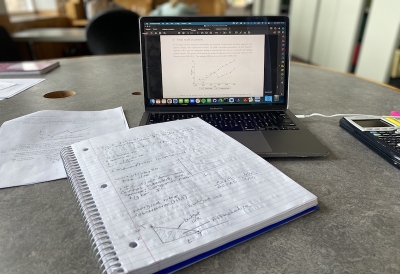
The Economics Major
As you may have read in People Place Pines and elsewhere in the web, Economics is one of the most popular majors at Dartmouth. Personally, I had not heard of the major when I started college; now three years later, I am halfway through my requirements and have spent hours researching what it is, and how it works. So, here are some of my takeaways that I hope give you a clear glimpse into Economics at Dartmouth.
You begin by taking some prerequisite courses. There are three: Introduction to Economics, Introduction to Statistical Methods, and Introduction to Calculus. These classes give a snapshot of the rest of the major, and professors often talk about other classes they teach in the department so students know their options. I genuinely enjoyed these courses; however, if you received college credit for any of the equivalent high school courses through AP, IB, or similar programs, you can actually move straight to upper-level courses!
Then, there are three required courses for all Economics majors: Econometrics, Macroeconomics, and Microeconomics. These can be taken in any order—some students, myself included, even decide to leave one or two of these until their senior year depending on their D-Plans and course schedules. There is a lot of flexibility in the Economics department.
The third component of the major is choosing your culminating experience. This is where students have the freedom to study the topics in economics they're most interested in, and there's lots of options. You can choose from Macroeconomics, Development Economics, Industrial Organization, Finance, Labor Economics, Public Economics, and International Economics. Each culminating experience consists of a three-course sequence, the last of which often involves a research project of your choosing.
The last requirement of the major is to complete three additional Economics courses of your choosing—which do not have to be within your culminating experience. This is a chance to expand your knowledge in the discipline and learn skills that might come in handy in the future. After that, you're good to go! The Economics major is nine courses (+ three prereqs) out of the thirty-five required to graduate from Dartmouth. So, there's plenty of room for study abroads, a two-course term, and other majors or minors.
Now in my Junior year at Dartmouth, I have decided to pursue the Public Economics culminating experience. This term, I am taking the first course of the sequence, ECON28: Public Finance and Public Policy. It's one of the most interesting classes I have taken at Dartmouth, and my professor is awesome. So, if you think you might be interested in Economics, I highly recommend it.


















